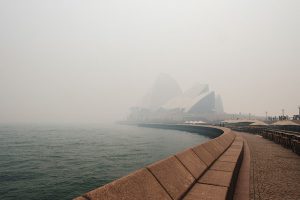

Serious health impacts from exposure to bushfire smoke have been clearly reported by the NSW Legislative Assembly Inquiry Committee that recommended action on mitigating the health impacts of exposure to poor air quality resulting from bushfires and drought.
Yesterday, the NSW Government released their response to the Committee’s recommendations.
Asthma Australia welcomes the steps taken by the NSW Government to update air quality reporting and drive nationally consistent standards, but says a first class public health response was needed given the increasing likelihood of catastrophic bushfire and smoke events in the future.
“It’s been 17 months including a Royal Commission and people still haven’t been given clear direction on how to stay safe during hazardous smoke events. People couldn’t breathe, the smoke haze affected 80 per cent of our population.
“We need to see recommendations translate into building resilience in our communities, and through the COVID-19 pandemic the NSW government is very capable of mounting a first-class health response.”
People with asthma are the among the most affected when exposed to bushfire smoke, a prevalent condition which impacts one in nine Australians (2.7 million people).
The health impacts of the 2019/2020 bushfire smoke crisis have led Asthma Australia to seek reforms when it comes building community resilience towards air quality, especially for vulnerable populations.
Evidence from Asthma Australia’s Bushfire Smoke Impact survey on the collective experiences of 12,000 Australians who lived through the bushfire crisis showed that the public health messaging did not protect people from suffering serious asthma attacks or other health conditions.
Asthma Australia was invited to present the survey findings and recommendations to the NSW Bushfire Inquiry Committee alongside Cherylleigh Partridge the older sister of 19-year-old Courtney-Partridge McLennan who suffered a fatal asthma attack in late November 2019 in the NSW regional town of Glen Innes.
During the Inquiry, Cherylleigh described how her sister went to bed healthy and suffered an aggressive asthma attack triggered by bushfire smoke as she slept.
“I hope we can be confident that we will have access to the information we need to keep us safe in the future,” Cherylleigh urged.
Asthma Australia is committed to working with the NSW government to act on recommendations put forward by the NSW Inquiry into the health impacts of exposure to poor air quality resulting from bushfires and drought, including implementing an Air Smart public education campaign.






